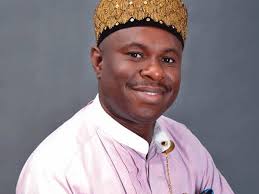1966 coup nearly marred my first teacher’s posting – 90-year-old retiree

In this interview with BIODUN BUSARI, 90-year-old Igbayilola Oyebiyi, goes down memory lane to recall her adventure as the only female councillor and first majority leader at Boripe Local Government Area under the old Oyo State. The octogenarian, who still foresees a better Nigeria, also spoke about the successive coups that ushered in military regimes, the transition to democratic governance, her fascinating experiences as a teacher, and many more
From all indications, you have had a fulfilling life. Can you tell us more about the remarkable times that marked your nine decades on earth?
My life has been full of grace, impact, and rich experiences from childhood. As a teacher, I have dedicated my life to the service of God and humanity.
My parents, Niyi and Ibitola Ajiboye, gave birth to me on July 17, 1934. Losing my mother at a tender age was painful and I don’t think she lived up to the age of 30 before her death.
I was nurtured by my stepmother and with the help of God, my aunt. I started my primary education in 1943 and finished Standard Six in 1950 at the First Baptist Church School, Ijagbo, Kwara State.
What was it like getting your first job?
In those days, you don’t have to write any application to get employed. After my Standard Six, I was posted to the First Baptist Church School, Ajasse-Ipo in Kwara State, in 1951.
It was there that I got my first teaching job. Two years later, I went for a teacher’s training course at the Women Training College, Kabba, the present-day Kogi State.
The training lasted for three years and I graduated with a Grade III certificate. I was employed at the Baptist Day School, Ijagbo, in 1955. It was there that I met my husband, Okunloye Oyebiyi, and we got married in 1957.
God blessed us with six children. At that time, orthodox churches were the owner of schools and teachers often worked at schools owned by their churches. I was and am still a Baptist member.
What was the difference between raising children then and now?
The fear of God existed in those days and parents nurtured their children. It was the responsibility of all parents at that time to advise children, encourage, and discipline them without resentment.
Children saw their teachers as confidants and treated them with respect. But the reverse is the case now. Today’s youths often seek quick success without enduring the trials and difficulties that come with it.
Materialism is mistaken for success and has made many miss the real thing. Passion is also missing, even among Christians. It wasn’t so during my time. Then, boys and girls were trained to do house chores, and it was the joy of all parents to instil discipline in any child they came across.
Our society grew with productive efforts and ideas initiated by teachers and supported by parents. Education was valued, although teachers were paid very little. Despite this, teachers were respected and could walk with their heads held high, believing their work ethics were vital in building a better society.
Today, many of these virtues have been eroded by false doctrines, and there is little respect for elders.
What was an unforgettable experience in your teaching career?
In 1966, my husband gained admission to the Rural College of Education, Minna, Niger State, to further his studies, leaving me and the children at Ijagbo.
I suggested we should be together as a family and we made our intention known at the Baptist Church headquarters, and it was approved.
I was eventually transferred to Minna but unfortunately, during the festive period, we returned home to discover that my father-in-law was sick and bedridden.
My husband couldn’t take him to the hospital due to the violent crisis called Operation Wet ie that rocked the Western Region.
My father-in-law later died, and we conducted his funeral before travelling back to Minna.
This really delayed us. We travelled by train, which took about three days. When we arrived on January 15, 1966, we were greeted with the news of a coup.
It was the country’s first military coup, during which the former Prime Minister, Tafawa Balewa; former Premier of the Northern Region, Ahmadu Bello; Ladoke Akintola, and others were killed.
This disturbed me emotionally because I kept wondering why it should happen on my first day in a new place.
The chaos disrupted our plans as we started scrambling for safety and shelter. Initially, I blamed myself for the decision because the city was plunged into chaos, leading to the loss of lives and property.
My husband had to use the landline at a railway station to call his friend, who came to pick us up. It was one of the most harrowing experiences I ever had.
Afterwards, we settled amid the chaos and spent three years in Minna. Later, my husband travelled to the United States, and I had to leave Minna with my children in December 1969, after getting a transfer back to Ijagbo.
I was later promoted to another school in Offa, Kwara State, as a headmistress in 1976. I stayed there until the government sponsored me and a male colleague for a teaching course at the Ado Bayero University, Kano State.
I was later posted to Ikirun in Oyo State, now Osun State.
Another unpleasant experience I had was that my salary was reduced twice in Niger and Oyo states because the authorities said I was earning more than my colleagues.
Were you not overwhelmed by these transfers?
They were not pleasant experiences but seemed easier because my husband and I were passionate about our teaching careers.
My husband travelled to Ikirun for another course, and I joined him there with the children. We had barely settled when he was transferred again to Ibadan, and I received a transfer letter to Iree.






